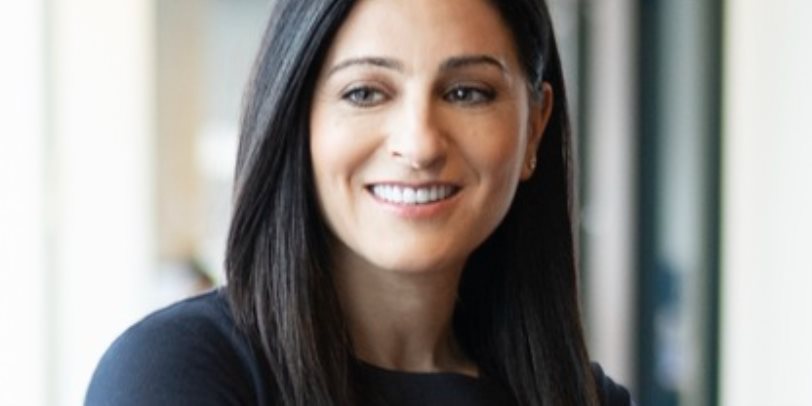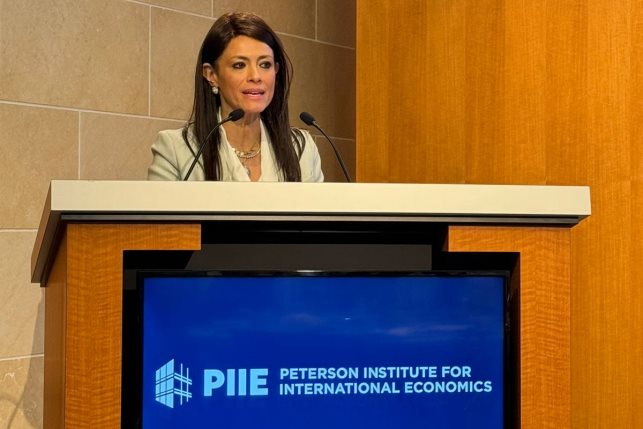Taking the shot and talking business with Dell Technologies’ Rola Dagher
As a Lebanese expat, who escaped war and rose through the tech industry, she is an inspirational figure for women and immigrants whose determination and grit delivers a powerful success story

Today, as the Global Channel Chief Officer at Dell Technologies, Rola Dagher is one of the tech industry’s highest-ranking female executives.
As a Lebanese expat, who escaped war and rose through the tech industry to where she is today, she is an inspirational figure for women and immigrants whose determination and grit delivers a powerful success story.
To learn more about her, Business Today sat down with Dagher to hear more about her personal story, today’s world of tech, and Dell Technology’s channel organization and partner programs.
Rising against the odds
---Rola-Dagher---Dell-Technologies.jpg) Rola Dagher - Global Channel Chief Officer, Dell Technologies
Rola Dagher - Global Channel Chief Officer, Dell Technologies
Growing up in Lebanon during war, Dagher spent most of her young years in a bomb shelter before immigrating to Canada without a formal education and hardly any English to become one of the top women in tech today.
“For me, I look at my journey, and it wasn't a journey that was easy to take, as something that has shaped me to be who I am today because my struggles were my strength. I turned my wounds into wisdom by ensuring that I'm always determined,” she told us.
I fell in love with technology at “Hello”
When asked about the challenges she has faced as an Arab woman, a leader responsible for technical engineers, and as a president and CEO, she replied with being people expecting her not to deliver. However, she doesn’t let this slow her down, saying “proving them wrong is the best part. It’s fun when people are waiting for you to fail, and then you show them the value you bring to the table.”
Outside of the workplace, Dagher has had to face racism and discrimination for simply being a successful Arab woman.
Having the opposite effect, the global channel chief stated that she was “more determined to prove the ability of women as a woman in a high executive position and as an Arab woman; that women come fully equipped with the emotional quotient, the IQ, and are the full package.”
I'm extremely proud to be an Arab woman sitting at an executive level that earned it and supports the Arabic community every day
Looking back at her early years in tech, Dagher explained that “women in IT back in the days when I started 25 years ago wasn't something that you would see in a boardroom; to walk in, and find there's a lot of women. Even now, in certain areas, I see maybe less than 10% in the room that are female, which is changing, by the way, which is good.”
“At Dell, we have made great progress on this topic, with nearly 34 % of our team members being people who identify as women. We attribute this increase to our clear strategic focus on our 2030 Cultivating Inclusion Moonshot Goal, which says that by 2030, 50 % of our global workforce will be those who identify as women. How do we incorporate? How do we get that 50% female participation and engagement?”
Throughout her journey, she noted that her biggest lesson was learning to live a life of service, pointing out that “when you look at a life of service, you look at how you can use your position to have the power to impact others to inspire others.”
Dell, Business, and TechLet’s talk business. Dell Technologies has become more invested in its channel business in recent years, what is the company’s vision and strategy moving forward?
Let me start by saying our partners are our oxygen, what our ecosystem is built on.
The vision and the strategy have always been ‘together, we stop at nothing’
[Dell’s strategy centers on] how to be more predictable, how to be more profitable, and how to be simpler in terms of how we actually do our business.
When looking at business from a channel perspective, I look at it in three different ways, how do we move from transaction to transformation to experience.
Today, more than ever, the world is looking at the way that every company does business, be it server storage, PCs, all of it. We focus on keeping the lights on and continue to grow our transaction business, but most importantly, we're leaning towards the strategy around transformation.
Transformation is extremely important for us to move into the next phase of how our customers want to consume the business.
When you talk about as-a-service, about multi-cloud, the edge [Edge computing is the process of consolidating and streamlining data management and operations to reduce latency and secure the operating environment. Dell launched its Edge Solutions in 2021], and security, that is all transformational business.
For us, it's extremely important to be able to provide that solution, the end-to-end technology, because to me it's a journey.
You don’t walk into a customer-partner meeting and just want to sell a product, you want to be able to work with our partners, to help them understand the Dell technology journey in order for them to go back and provide that to our customers, and it's solution driven.
The third pillar is around experience. For me, it’s extremely essential in that we live in an era where it’s all about experience; the partner experience plus the customer experience
It’s been an awesome journey where we continue to focus in developing our tools, automation and capabilities to provide that excellent experience that our customers are looking for in partners.
Could you share what kind of investments have been directed towards strengthening the channel business, and its impact on annual revenues or orders?
When you look at the investments we’ve made into channel, it’s huge.
Our investments have all centered around innovation, centered around the programs itself for our partners, the rebates, the profitability, and the credibility that we need to earn with our partners. Also, tools and capabilities are extremely important for us, so we continue to invest in that.
Let me give you an example. In FY 2018, we had 3,730 metal partners, In FY 2022, we grew that to 5,408 metal partners. And during the 2022 fiscal year, our partners contributed over 50% of our net revenue.
As we look at how the world is moving into the as-a-service model, for us APEX is a global solution that we're rolling out into regions that we've invested a lot into.
When we started the APEX journey, there were only a few countries that we launched in, and now we're up to 40 countries, and we continue to roll out into new countries, and soon to be announced, hopefully, within this region.
[With APEX, Dell brings its infrastructure portfolio to customers as an as-a-service offering, providing greater access to technology across Dell’s infrastructure stack including storage, networking, virtualization, and data protection.]
How has Dell’s channel model changed over time, and how have its services and offerings transformed during the past 3 to 5 years, particularly in the Middle East and Egypt?
From investing, accelerating, transforming, maintaining and aligning to where we need to be, the focus has been directly towards the feedback we received from our partners. We actually host partner advisory boards; we have the North America Advisory Board, we have the EMEA Advisory Board, and from there we receive the feedback from our partners to help us transform.
I always say we're in the mode of listening to understand not listening to speak, listening to develop, and listening to execute
This is all based on continuous improvement; in terms of the feedback that we get, how do we take it from good to great, and how do we continue to focus on that continuous improvement.
That’s how we’re improving the programs, be it CSG, which is our client business, to our infrastructure business, to the security to the software, all of it, it's part of what we continue to develop with our partners.
Earlier this year, Dell announced changes to its partner program. Could you elaborate more about these changes and how they have affected revenues and growth so far?
I won’t get into too much detail on the actual program, but what I will tell you is that it centers around customer experience, how we expanded on the partner ecosystem, and a focus on ESG [Environmental, Social, and Governance] and sustainability in regards to what we do.
When we looked at how we evolved our programs, we looked at traditional business in terms of what you would need to get to a certain level as a partner because we have different levels, for example, titanium black is our highest level of partner.
We added incentive programs to enable partners to have multi-line work with us. Acceleration programs around storage, that was very important as well. We also had the ESG component which we are working on, including from a sustainability perspective.
On social impact, we’re trying to go out there and be creative from an ESG perspective
Then it is all around customer experience, the partner experience. So, you’ll find acceleration on storage, acceleration on servers, acceleration on PCs, and of course, globally we’ve got APEX which is part of what we’re offering right now.
[continuing on ESG] I'd say it’s an extremely important part of the conversation and the business moving forward. Over 95% of our customers are coming in with an ESG component in their RFPs. So that is how that has been a very, very, very big focus area for us.
[On ESG, Dell has shifted around 90.2% of packing across their entire product portfolio to recycled or renewable materials, with a 26% year-on-year increase in the percentage of products sold being taken back for reuse or recycling.]
What can we expect from Dell in the close future? Any expansions, new launches and etc. in the pipeline you’d like to share?
Continue to expect our focus on innovation, edge, telco, and 5G, multi-cloud, security, and basically the entire workforce environment. These are areas that you’re going to see innovation, and understand our focus on how can we continue to modernize those for our customers and partners.
So, yeah, edge, telco, and multi-cloud is here to stay for a very long time, and that is something we are extremely passionate about making a difference in.
What are the key trends driving the technology market today? What emerging technologies or opportunities should businesses be on the lookout for?
So, if I look at the IDC predictions in the trends of what’s happening today, obviously security and multi-cloud are everywhere.
When I look at the world and what the world is heading to, I see NFTs, I see crypto, and the metaverse. People and companies are already talking about how can we do business in the metaverse, what does that mean, and how do you get out there.
We, as Dell technology, are preparing for the next generation of innovation to be able to deliver based on the trends that are happening.
What about today’s challenges? What are they and how have they affected the business outlook for Dell and its partners/clients?
We’re going into an interesting time, a very challenging time overall. So, when we talk about some of the stuff that’s happening between the Russia and Ukrainian war, the war on talent, inflation and what’s happening today in the technology world, I believe we are going to see a normalization of what COVID accelerated.
In terms of the acceleration that all companies, not just Dell, saw and benefited from during the pandemic, I believe we’re going to see a softness in the market that will normalize these things. For us, we just announced our Q2 numbers and it was a solid quarter, and we’ve seen the signs for the normalization of business when we compare it year over year, quarter over quarter.
Lastly, as a Middle Eastern female leader in tech, could you share some words of wisdom with our readers looking to join the regional and international tech industry?
My advice would be that if it scares you, do it, get out of your comfort zone, challenge yourself. Learning and growing are the best things that you could ever do.
International assignments are very good for you; for me specifically, when I look at when I had my role in Canada versus my global role, the amount of learning was amazing.
Now, I would say if anyone has the opportunity to do a global assignment and get out of their comfort zone, go do it. Because they miss 100% of that shot that they don't take, so take the shot.




